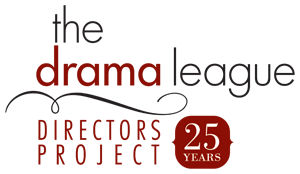
The last time I was in London (this past July), I was lucky enough to get a day seat at Sean Matthias’s production of Waiting for Godot, starring Ian McKellen, Patrick Stewart and Simon Callow. I was surprised and somewhat wary to discover another Beckett play was on the West End boards, but the combination of the artists and the work was irresistible: a Theatre de Complicite and National Theatre production of Endgame, starring Simon McBurney (who also directed) and Mark Rylance.

I had loved McBurney’s production of All My Sons on Broadway last season (Katie Holmes and all), and have admired Rylance for many years for in diverse performances ranging from Cleopatra, Hamlet, the Duke in Measure for Measure, Boeing Boeing and most recently, the protagonist of Jez Butterworth’s astonishing new play Jerusalem at the Royal Court (soon transferring to the West End, after Endgame finishes its run). I am accompanied once again by Billy Porter, and also by Ioli Andreadi and Rachel Grunwald, two colleagues from the Lincoln Center Directors Lab.

Ioli (left) is a PhD candidate in Fire Rituals in Performance at King’s College, London, with whom I am going to collaborate on a project based on the Prometheus myth.

Rachel (above) is a London director whose production of a new J. T. Rogers’s play will soon be touring the U.S. as part of "The Great Game," plays about Afghanistan (originally produced at The Tricycle Theatre).

The production carried the all-immersive nature that is the trademark of Complicite's work. The aesthetic evoked opera (the set did not feel dissimilar to Duke Bluebeard’s Castle), and the lights and sound were used almost continuously to engage and construct the audience’s experience of the play throughout the evening. The actual staging was very simple – Mark Rylance’s chair-bound Hamm stayed mainly center stage while Simon McBurney’s Clov shuffled around him and Nagg and Nell popped up and down from the infamous Beckett trash cans, down stage left.

The focus therefore was purely on the spoken text. I aspire in my own work to ensure that every moment in a production is active – that is, that every line of text is spoken to make someone do something. For me, action defines the event. What McBurney was able to accomplish in rendering inactivity active was quite staggering. The opaque, impenetrable text seemed natural and effortless, and the production concisely communicated the metaphorical subtext of the play (that we are all in inescapable rooms of our own making with people in our periphery gradually disappearing as we move inexorably toward death). Rylance and McBurney were also able to capture a deeply emotional relationship between Hamm and Clov, so that the final moments in which Hamm descends into a physical and spiritual nothingness while Clov looks on silently are incredibly moving.

Rylance has been criticized by quite a few of London’s big critics for a self-indulgent performance. Having seen him in previous productions, I could certainly identify certain vocal, physical and technical tricks that he used, but it did make sense within the context of the production, which reads Hamm as self-obsessed and selfish. It will be interesting indeed to see how the essence of his character translates into the kind of universal interpretive articulation of great actors like Dame Judi Dench, Sir Ian McKellen and Kevin Spacey (amongst others), all of whom essentially play variations of themselves in all the characters they tackle. With his recent Tony win for Boeing-Boeing and the upcoming West End (and perhaps, Broadway) transfer of Jerusalem, Rylance is poised to achieve the kind of mainstream profile as Great Actor of His Generation that will test the elasticity and universality of his essential character.

Above, I am flanked by Ioli Andreadi and Rachel Grunwald.
(posted by Ed)


No comments:
Post a Comment